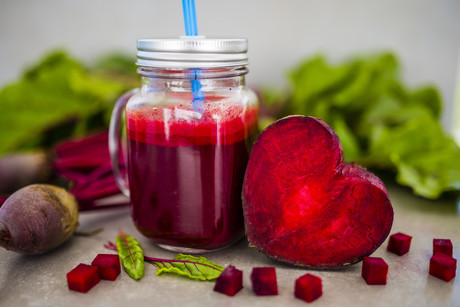Beeting natural colour fade in food and drinks

Consumers prefer natural colours but these colours are not as stable as synthetics and often degrade dramatically when exposed to common food processing techniques.
Beetroot extract is already used extensively in beverages, dairy and fruit products, but its colour degrades when exposed to heat, light or changes in pH. However, the bright red colour of beet juice can now maintain its colour and be used in a much wider range of food thanks to a processing technique developed by a team of Cornell scientists.
The researchers found that combining beetroot extract with locust bean gum, sodium alginate or gum arabic and then subjecting it to very high pressure improved the stability of red colourant during heated food processing, as well as during up to six weeks of cold storage.
“Our goal is to provide clean ways of modifying ingredients, using chemistry knowledge and technology that we develop in the lab, to help the food industry create healthier, more palatable foods,” said lead author Alireza Abbaspourrad, the Youngkeun Joh Assistant Professor of Food Chemistry and Ingredient Technology in the Department of Food Science. “We’re looking at how we can use natural ingredients, stabilise them, make them last longer and incorporate them in our diets.”
Call for comment on a new source of 2′-FL in infant formula products
FSANZ is calling for comments on an application to permit 2′-fucosyllactose produced from a...
Infant formula recalled due to potential toxin contamination
Due to the potential presence of the toxin cereulide, there has been a precautionary recall of...
Spicing up the festive season with Australian bushfood flavours
Spices unique to Australia could help to transform end-of-year special occasions by adding bold...











